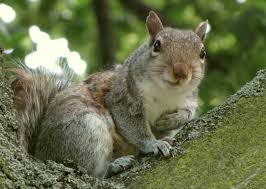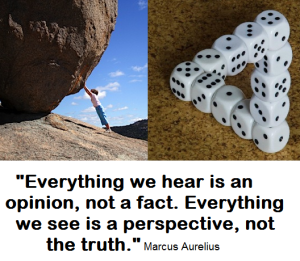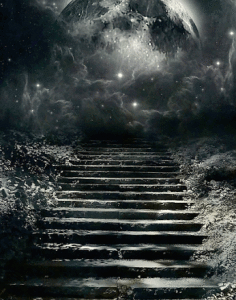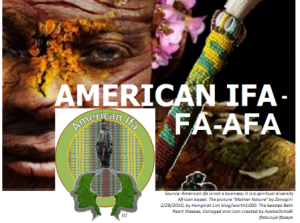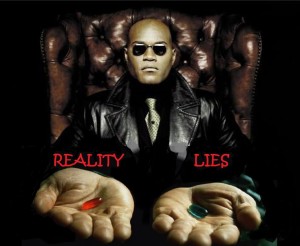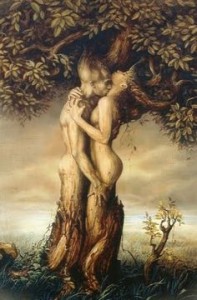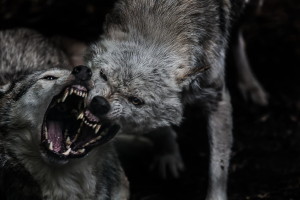Aboru aboye abosise and greetngs, American Ifa bring the odu Ogbe Iwori:
Ifa says that we should practice good behavior……………………
Ogbe-Iwori 1:
Ifa teaches us a lesson here. Ifa says we should behave well, that we should not look down on anyone, saying that (s)he cannot be successful. Ifa says so. It says that we should not look down on anyone and think that (s)he cannot succeed. It says that we should practice good behavior. Ifa says that this person should offer a sacrifice for his/her legacy so that it will be great when (s)he passes on. Because a person’s behavior determines what (s)he will receive. Ifa says so in Ogbe-Wẹhin. Ifa says people reap what they sow. Ifa says this person should make a sacrifice for his/her legacy. Ifa says this person’s problem will be resolved and his/her yearning will be met. Ogbe-Wẹhin says so. This is what it says, that everything this person achieves during his/her lifetime, when (s)he leaves this world behind, his/her legacy will be great. This person should buy a dog for the sacrifice. (S)He should buy a dog, and ifa says when the babalawo have finished collecting the medicine, they should rub the iyẹrosun [divination powder] over the body of the dog. They will give it to him, and (s)he will raise the dog. The dog will be called “who knows what (s)he will leave behind? Who knows tomorrow?” Ifa says this person should not look down on anyone and assume that (s)he cannot succeed. This is how Ifa reached that conclusion. Ifa said:
Ogbe wo ẹhin wo, baja rẹ o pakun, a difa fun Ekuya eyi ti n ṣawo re ahoro ile baba rẹ, ti n lọ re jogbo, ti n lọ re jaatọ. Ẹbọ ni wọn ni o ṣe, o si gbẹbọ nibẹ, o rubọ. Ko pẹ, ko jinna, Ifa wa ba ni ni jẹbutu ire; jẹbutu ire laa ba ni lẹsẹ ọbariṣa. On ṣe ta n mẹhin, ta ni mọla? Bi wọn o ba kuku lowo lọwọ lọla? Ta ni mẹhin, ta ni mọla? Bi wọn o ba ni lari lọla? Ta ni mẹhin, ta ni mọla…
[Ogbe look back and see if your dog has killed a squirrel, cast Ifa for Ekuya who practiced Ifa in his father’s house, who grew old but was still strong. He followed Ifa’s instructions exactly and offered the sacrifice. Not long after that, Ifa met him in the midst of blessings. We receive the gift if blessings at the feet of God. He said, “Who knows what (s)he will leave behind, who knows tomorrow? If they will become suddenly rich tomorrow? Who knows what (s)he will leave behind, who knows tomorrow? If they will become successful tomorrow? Who knows what (s)he will leave behind, who knows tomorrow?]
Ifa says this person should not look down on anyone, that there is nobody who cannot become successful. Ifa says so in Odu Ogbe-Wẹhin.
COMMENT:
There are people who claim that they are initiated, yet they have a hard time living up to the position without cursing other initiated people in this way of life. It have nothing to do with iwa pele or iwa rere; it about spirituality and self-consciousness. Old folks use to say, “You have not home training.” Basically, it is your perception on life and others.
Ogbe-Wo Ẹhin 1:
This Ifa sign here, anyone for whom it is cast, Ogbe-Iwori which is called Ogbe-Wo Ẹhin Wo. Ifa says that this person should make an offering so that his/her life may be pleasant. Ifa also says this person should not leave his/her father’s house. (S)He should not go far from his/her father’s house to ensure that (s)he can receive a blessing. So that (s)he can take advantage of all the opportunities that are there. (S)He should not go far from his/her father’s house at all. If (s)he does not go far from his/her father’s house, Ifa says (s)he will live a long life. All of the blessings that are intended for him/her, (s)he will receive in Ogbe-Wo Ẹhin Wo. Ifa says if (s)he has gone already, (s)he should remember where (s)he has come from, look back, and come back to his/her father’s house. If (s)he has gone overseas, (s)he will not succeed there. If (s)he goes anywhere else, (s)he won’t be able to be successful. If (s)he is going back and forth, Ifa says (s)he should not leave his/her father’s house so that (s)he may have a long life. That is where (s)he will receive his/her blessing. Ifa says so in Ogbe-Wo Ẹhin Wo. This is how Ifa said it, Ifa said:
Ogbe wo ẹhin wo, baja rẹ o pakun, a difa fun Ekuya eyi ti n ṣawo re ile baba rẹ, ti n lọ re jogbo, ti n lọ re jaatọ.
[Ogbe look back and see if your dog has killed a squirrel cast Ifa for Ekuya who practiced Ifa in his father’s house, who grew old but was still strong]
Ekuya [a type of wild plant] went to the other side of the world to try his hand at business there. He tried and tried and tried. He made a good name for himself there, and people favored him, but he didn’t find any gain in any of it. Ifa said he should go back home. When he went home, things began to change for the better; his hometown was favorable for him, and he had peace of mind. They prospered, some died, and they multiplied. He was very happy. Every time his ancestral festival came around, he would dance and rejoice and remember the babalawo who cast Ifa for him when he was on the other side of the world and told him to return home. He did not call the priests liars; he did not call Eṣu a liar. He did everything he was told to do. They said when he returned to his father’s house, he would receive his blessing. He would grow and prosper. He praised the babalawo, and the babalawo in turn praised Ifa. He said, my babalawo told me it would be so, my babalawo said:
Ogbe wo ẹhin wo baja rẹ o pakun, a difa fun Ekuya eyi ti n ṣawo re ahoro ile baba rẹ, ti n lọ re jogbo, ti n lọ re jatọ. Ẹbọ ni wọn ni [k]o ṣe, o si gbe ẹbọ nbẹ, o rubọ. Riru ẹbọ ni fi ti n gbe ni. Aitete ru teṣu a da ladanu. Ko pẹ, ko jinna, Ifa wa ba mi laarin iṣẹgun, aarin iṣẹgun laa ba ni lẹsẹ ọbariṣa. Ẹyin o wofawo ki bi ti n ṣẹ.
[Ogbe look back and see if your dog has killed a squirrel, cast Ifa for Ekuya who practiced Ifa in his father’s house, who grew old but was still strong. He did everything Ifa prescribed. His sacrifice was accepted. Failure to sacrifice to Eṣu renders any effort a waste. Not long after that, Ifa met me in the midst of victory, we receive victory at the feet of God. Come and see what the Ifa priest has done!]
That is how Ekuya became successful. If anyone goes all over the place, if (s)he sees a house that has collapsed and become dilapidated and sees the Ekuya plant there, the plant will be prosperous. It will gleam, be sparkling white, and will be shining. This is all because of the sacrifice it made on that first day when it did not refuse to return to its father’s house, the place that was favorable for it. Ifa says if this person should travel abroad, (s)he should look back and stay in touch with what (s)he has left behind. There are no blessings for him/her in front; they are all behind him/her in his/her father’s house. That is where (s)he will receive his/her blessings. Ifa says so in Ogbe – Wo Ẹhin Wo.
Ogbe-Wo Ẹhin Wo 2:
If this Ifa sign should come up for a person, if this Ifa sign should emerge, Ifa says this person should be very patient. Ifa says a lack of children is troubling this person, and Ifa says if (s)he is patient, (s)he will have children. Ifa says (s)he should seek out Ọṣun and care for Ọṣun. Ifa says Ọṣun holds his/her blessings. Ifa says that the issue will be addressed directly, and (s)he will have children. (S)he should be diligent in the worship of Ọṣun. She will become a mother and will soon carry her child and dance. She will rejoice a great deal. Ifa says so. This is how Ifa said it. Ifa said:
Aṣiju wẹhin obinrin awo apo, aṣiju wẹhin ọkunrin awo amọ, igba elepo abẹhin manamana a difa fun onile eti odo eyi ti n mẹnuju ṣe rahun nitori ọmọ. Ẹbọ ni wọn ni ko ṣe, o si gbẹbọ nibẹ o rubọ. Ko pẹ, ko jinna, ẹyin awofa ọjọ bi ti n ṣẹ. Ko pẹ, ko jinna, Ifa wa ba ni ni jẹbutu ọmọ, jẹbutu ọmọ laa ba ni lẹsẹ ọbariṣa. Ẹ ba wa ki yeye o. Yeye o a fidẹ rẹmọ. Ọṣun yeye o, a fidẹ rẹmọ. Ẹ ba wa ki yeye o, a fidẹ rẹmọ. Ọṣun yeye o, a fidẹ rẹmọ.
[The woman moving forward but aware of what is behind is the companion of the arrow holster, the man moving forward but aware of what is behind is the companion of the bow. The back of the palm oil seller’s calabash is always shining cast Ifa for the owner of the house by the sea who was distraught because (s)he didn’t have children. (S)He did everything asked of her. It did not take long, come see how quickly Ifa’s prediction came to pass. We receive the blessing of children at the feet of God. Greet our great mother for us! Our great mother uses brass to pacify the children. Ọṣun, our great mother, uses brass to pacify the children. Greet our great mother for us, the one who uses brass to pacify the children. Ọṣun, our great mother, uses brass to pacify the children.]
Ifa says that this person should offer a sacrifice, that (s)he should have brass in the sacrifice, that (s)he should offer the sacrifice to Ọṣun, and that (s)he should keep Ọṣun stones that always stay wet inside her house. She should take good care of Ọṣun. Ifa says she will have children in abundance. She will become a mother. Ifa says so in Iwori Meji [Ogbe-Iwori].
Ogbe-Iwori 3:
Ifa also teaches a lesson here. This person has a relative who is abroad somewhere. It could be his/her older sibling. They could share the same mother, or the same father. That person is in a faraway place. Ifa says the client should find a way to bring this person back home. There is an opportunity that they will benefit from this person’s return. They should bring him/her back, but it doesn’t have to be by force. They should offer a word of advice that this person should return home. There is a blessing, and this person should also have his/her part of it. When (s)he does come back, everyone in the family will benefit from it. All of the children of his/her mother will benefit, and they will have peace of mind. It could be a city where people practice politics, and they can’t find anyone within the family to take a position like that of a senator, or perhaps a governor, or the chairman of a local government, or even a counselor, but the person we have mentioned who is abroad, is up to the task. (S)He is a good person who will take care of everyone when (s)he is in that position, Ifa says we should find a way of bringing him/her home. Ifa says it will be very beneficial. Once (s)he is able to return, nobody in the family will be impoverished. They will not have to worry about money anymore. Ifa says so. This is how Ifa said it. Ifa said:
Ogbe Wẹhin wo bi o jẹ le san, bikun ba jẹ loju oloko, eku ẹ ṣagada lẹhin ebe a difa fun Ogbe eyi ti o gbe apo iwa kọ Iwori ọmọ iya rẹ lọrun. O ni ọjọ ta a ri Iwori la rahun aje mọ. A rira, mama jẹ ki a rahun a rira. Ojọ ta ri Iwori la rahun ire gbogbo mọ. A rira, Ifa mama je [ki] a rahun, a rira…
[Ogbe look back, maybe it will be better, the squirrel is grazing in the presence of the farmer, he has prepared the yam tubers for planting season cast Ifa for Ogbe who put a yoke on the neck of Iwori younger sybling. On the day when we saw Iwori, we did not worry about money anymore. A rira, don’t let us worry, a rira. When we saw Iwori, we didn’t worry about money anymore. A rira, Ifa don’t let us worry, a rira.]
Ifa says when this person arrives and comes back to his/her family, they will not worry about money anymore. Ifa says this about their family. That they won’t have to worry once (s)he comes home. Ifa says that they should look for a way for that person to return home. Ifa says they will do well to try this. That is if the person comes back. Ifa says there is success in it.(Harvard.edu)
